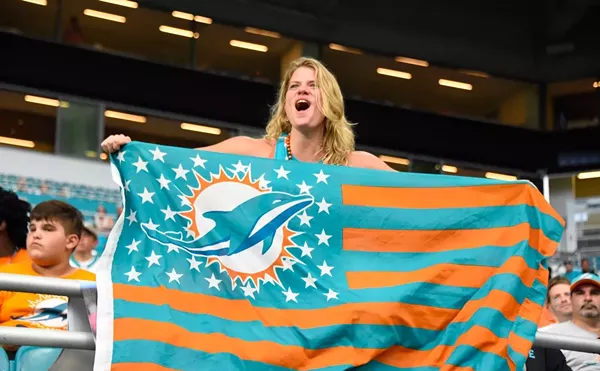All Aboard Florida, the private rail service that plans on running a passenger train from Miami to Orlando with stops in Fort Lauderdale and West Palm Beach, has written a letter to its biggest South Florida critic, addressing some of the bigger concerns.
Congressman Patrick E. Murphy has spoken out on his concerns about the 110-mph trains that would be running all day and sent a letter to Gov. Rick Scott last week about looking into installing "quiet zones" along the route to eliminate the need for trains to blare their horns every time they pass through.
But installing quiet zones can be costly, having local governments pony up $150,000 to $250,000 per rail crossing.
The company that owns All Aboard Florida, Florida East Coast Industries, plans on running 32 trains a day up and down the state's coastline starting in early 2016.
With a station in Miami in the works, All Aboard is also planning to build a 25,000-square-foot station adjacent to the Florida East Coast Railway tracks on NW Second Avenue, between Broward Boulevard and NW Fourth Street in Fort Lauderdale. A West Palm Beach station, which would be located between City Place and the Clematis Street shopping district, is also in the company's plans.
Scott announced back in February that Florida would commit $213.5 million toward construction of a public railway station in Orlando, which would be All Aboard Florida's Orlando station.
The trains would run between 350 street crossings between Miami and West Palm Beach alone, and it will be costly to make those crossings safe. Still, All Aboard says the Miami-to-Orlando railway will put $500 million back into the state's economy while creating jobs and helping the environment.
But Murphy has talked of his concerns over the impact the train will have on the safety, economy, and livability of the communities All Aboard plans to run through.
"While AAF may boost tourism and business in Florida's biggest cities, it also threatens to delay emergency vehicles, create traffic jams, raise noise pollution and block waterways along hundreds of miles of tracks," Murphy wrote in his letter to Rick Scott.
Murphy, along with Congresswoman Lois Frankel, also asked the U.S. transportation secretary to look into the concerns before considering All Aboard Florida's $1.5 billion federal loan.
In its response to Murphy, All Aboard Florida says his concerns and questions are legitimate and worthy of discussion and asks the congressman to contact them directly.
The letter also calls Murphy on what the company calls "factually inaccurate" statements and suggestions that he made in his letter to Scott.
All Aboard Florida cites an environmental assessment study by the Federal Railroad Administration that found "no significant impact" in the route between Miami and West Palm Beach. The company says the remainder of the proposed corridor is subject of an ongoing environmental impact statement.
All Aboard tells Murphy of its impeccable safety record in its near 100 years of operation and its commitment to building a safe railroad. The letter goes on to say that it's federal law for railroad companies to comply with the level of train horns and noise anyway and that the company will contribute to the majority of the investment needed to fulfill any local government's quiet zone requirements.
You can read All Aboard Florida's letter to Patrick Murphy below:
Send your story tips to the author, Chris Joseph.
Follow Chris Joseph on Twitter
Follow @NewTimesBroward












